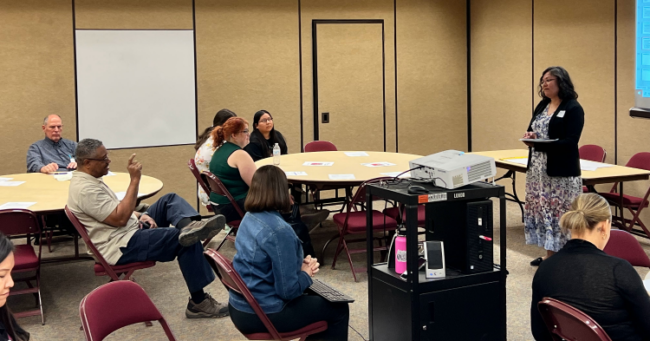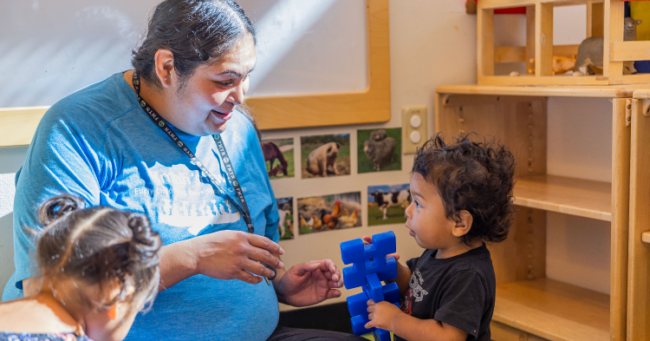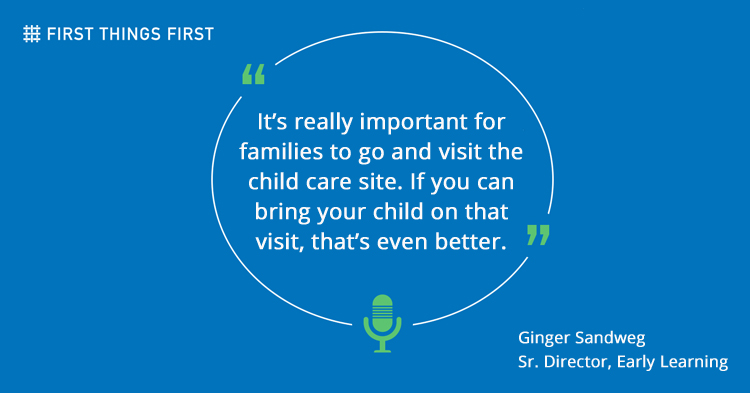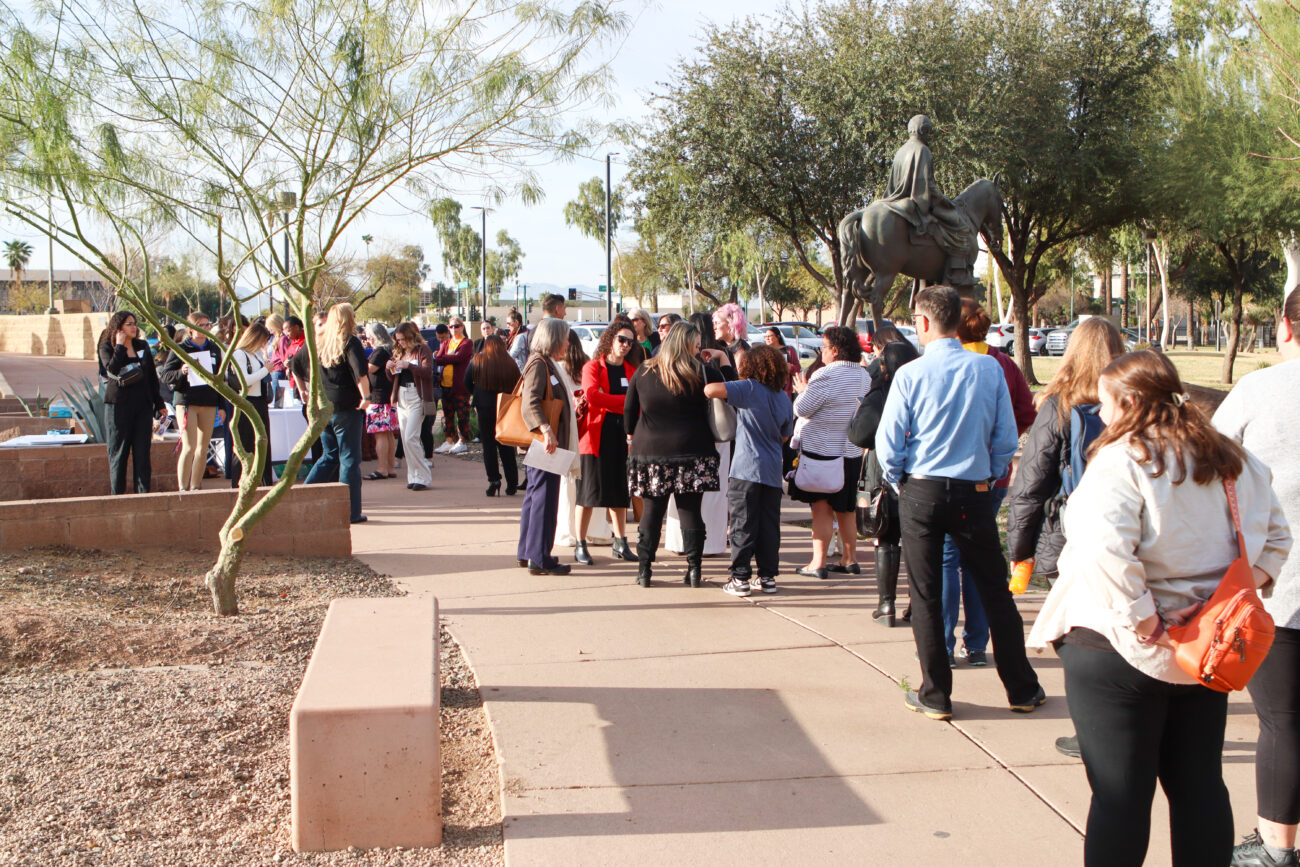
Early Childhood Day at the Capitol gathered more than 500 supporters on Feb. 17 to raise awareness of the importance of early childhood education with state lawmakers.
The gathering comes at a critical time as early childhood supporters rally in support of current legislative opportunities that could help stabilize child care for working families and continue a dedicated funding source to ensure Arizona’s youngest children have access to quality early learning and healthy development opportunities.
The Arizona Early Childhood Alliance (AZECA), of which First Things First (FTF) is a member, sponsors the yearly event. AZECA is an alliance of cross-sector partners statewide who share a common goal to ensure that all Arizona children are prepared for kindergarten and on track to succeed by the end of third grade.
“We were especially proud today to be joined by our partners from the business community and economic development organizations to share the impact that accessible, affordable child care has on Arizona’s economy,” said FTF CEO Melinda Morrison Gulick.

A key part of the morning was a panel discussion, “Moving Forward: Improving Arizona’s Early Childhood System” with economic development and business leaders from across the state: Katie Hurst, executive director of the Arizona Association for Economic Development; Mike Hutchinson, executive vice president for the Phoenix East Valley Partnership; Kathryn Decker, associate at Gensler; and Andrea Helart, president and CEO of the Lake Havasu Chamber of Commerce.
Topics ranged from how chambers of commerce and the business community can become advocates for families and children, the true cost to families and employers when working parents can’t afford child care and things businesses can do to support their employees.
“When working parents have to make the decision for one parent to leave the workforce because it is no longer affordable for two parents to work and be able to afford child care that really reduces the ability for those parents to continue to support that family in the same way,” Helart said.
She spoke of the ripple effect of a parent leaving the workforce.
“Most companies are not replacing that person,” Helart said. “They’re dividing the work among other employees, so now you have other parents who are perhaps overburdened because their work is forcing them to take on additional challenges without pay or flexibility. So that impact is not just one family, it’s multiple families.”
Hutchinson, who works with businesses in the East Valley, said the cost of child care today is “staggering.” He said he’s made it his mission to help business leaders understand how those costs impact employees financially.
“I tell people we’ve got to get with it,” Hutchinson said. “It takes people talking to their legislator. We’ve got to do it. Everyone’s got to be in the fray because they’re the people who are going to make a change.”
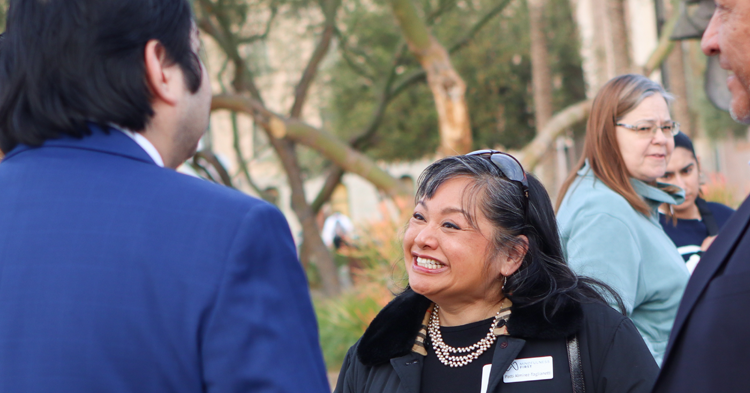
Decker, who is a former early childhood provider and now works for an architecture and design firm, said businesses can best support their employees by providing a spectrum of services. She gave examples such as providing on-site child care, working with organizations that can provide matchmaking services to help parents curate their child care to their needs and allowing for flexible work hours.
“Sometimes child care center hours conflict with a working parent’s schedule when you factor in drive time,” Decker said. “If you allow flexible schedules they can accommodate their work and child care.”
Some industries are more susceptible to the lack of affordable child care, such as those who work in health care and the growing advanced manufacturing industry, Hurst said.
One goal of the Lake Havasu Chamber is its role as a convener, bringing businesses, parents, educators and community members together to talk through challenges and solutions for child care in the area, Helart said.
She also mentioned that her chamber has joined the local child care taskforce and is asking human resource departments about how child care is directly impacting their employees and employment.
“We are getting feedback on what are the current child care options in your area. And what do we need to consider in terms of adding child care? That’s a hard conversation,” Helart said. “We’re trying to work smarter together to find out what those solutions are.”
Decker agreed.
“One of the critical pieces is investing in early childhood education, as well as access to child care,” she said. “That’s our future workforce. So by not investing it that now, we are going to be hurting ourselves in 10 to 15 years from now when those kids are underperforming and are not able to fulfill the needs of our businesses.”
The day included opening remarks from Monica Brinkerhoff, associate vice president of early childhood education at United Way of Tucson and Southern Arizona. As some attendees networked, others toured the Capitol. Constituents visited with their legislators in their offices throughout the day. Rep. Matt Gress and Sen. John Kavanagh were seen talking to participants at Wesley Bolin Plaza. Families who brought their children enjoyed reading time, while others participated in an advocacy workshop geared toward raising awareness of the importance of early childhood education.
AZECA members were on hand to talk about several bills they were championing including bills that aimed to eliminate the Department of Economic Security’s waitlist for child care assistance, coverage of famly and medical leave, a scholarship program for child care employees and a bill aimed to extend the tobacco tax revenues that created First Things First to vaping and alternative nicotine products.


